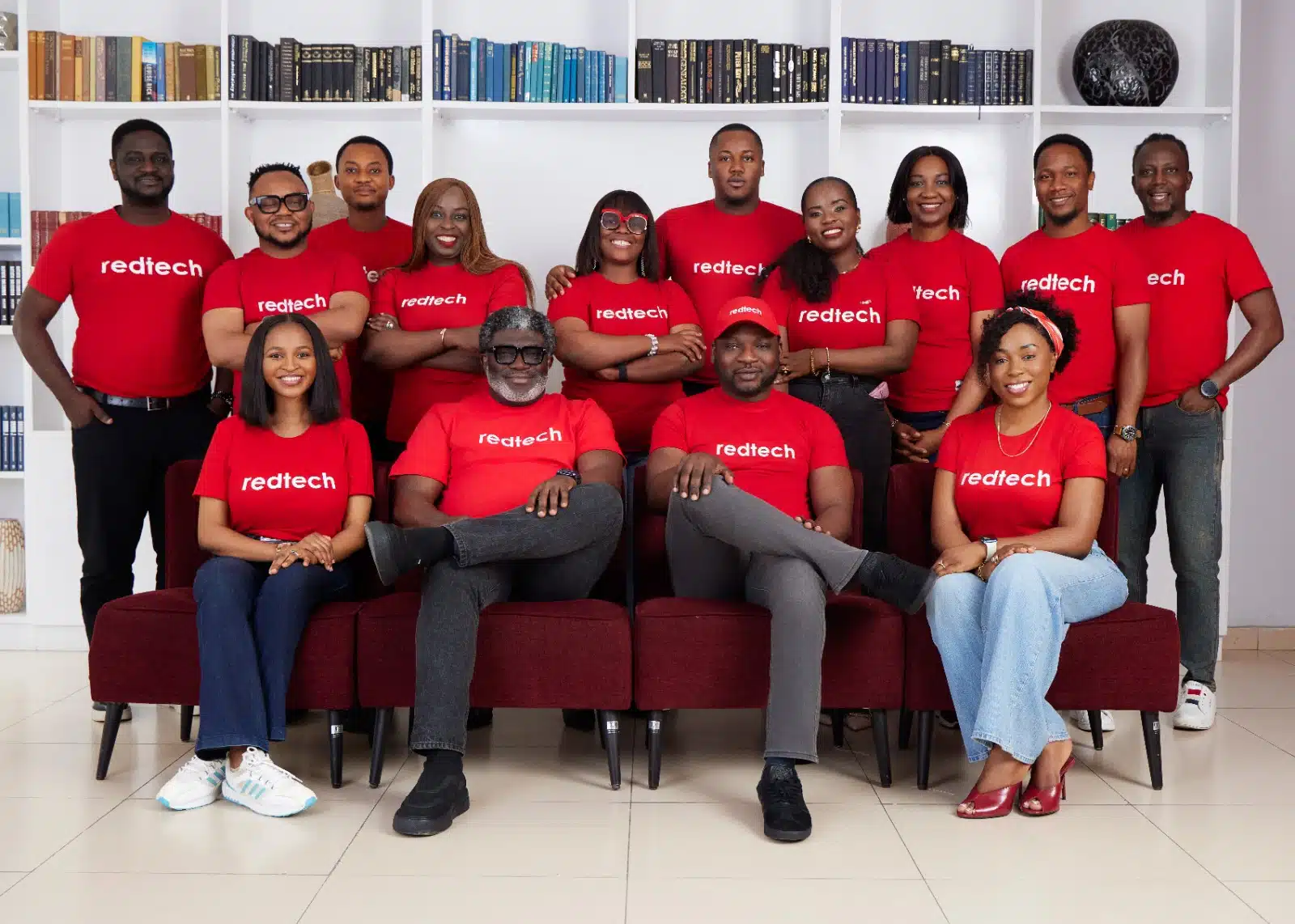As-salamu alaykum,
Victoria from Techpoint here,
Here’s what I’ve got for you today:
- Vodacom finally bags 30% stake in Maziv after four years
- Why African teens are bonding deeply with AI
- Court dismisses Tigran Gambaryan’s suit against EFCC
Vodacom finally bags 30% stake in Maziv after four years

After years of regulatory hurdles and legal battles, Vodacom has finally landed full approval to acquire a 30% stake in Maziv, the holding company behind South Africa’s major fibre-network players Vumatel and Dark Fibre Africa (DFA). The green light from the communications regulator ICASA was confirmed this week, with Vodacom saying all outstanding conditions precedent have been satisfied. The deal is due to be implemented on Monday, December 1, 2025.
This marks the end of a four-year journey that started in 2021. The transaction was repeatedly blocked, first by competition authorities, then by courts, on concerns that combining South Africa’s largest mobile operator with the dominant fibre infrastructure group could stifle competition. But after an appeal, new conditions and commitments, the regulatory path cleared, culminating in ICASA’s approval.
For Vodacom, this is much more than a financial investment; it’s a strategic pivot. With a direct stake in Maziv, Vodacom will now straddle both mobile networks and fixed-fibre infrastructure. That gives it huge leverage to offer bundled broadband, mobile and data services, and integrate fibre deep into its network architecture. Telecom analysts believe this could reshape the sector’s competitive dynamics almost overnight.
For consumers and South Africa’s connectivity aspirations, this could be a big win. Maziv has already committed to expanding fibre access, including targeting more than 8,000 previously “unconnected” mobile towers for fibre backhaul, a move that could significantly boost reach, especially in underserved or semi-rural areas. Combined with Vodacom’s scale, it may catalyse faster broadband rollout, better reliability, and possibly more competitive pricing over time.
That said, it looks like there’s still work to be done. Regulators and watchdogs will now need to closely monitor compliance with open-access obligations and fair treatment for rival ISPs. The consolidation puts a lot of power in one company’s hands, meaning consumers and competitors alike will be watching closely.
Why African teens are bonding deeply with AI

Across Africa, more teenagers are turning to AI companions for something far more intimate than homework help. What started as simple chatbots has quietly evolved into emotional support systems, virtual confidants and, in some cases, substitutes for real-life friendships or relationships. And with one in three young Africans reportedly using AI companions, the trend is no longer fringe; it’s becoming a cultural shift.

Victoria Fakiya – Senior Writer
Techpoint Digest
Stop struggling to find your tech career path
Discover in-demand tech skills and build a standout portfolio in this FREE 5-day email course
Techpoint Africa spoke to 15 teenagers, and their responses were a window into a new digital adolescence. Meta AI was the runaway favourite. Nine teens said they feel more “connected” to it than to ChatGPT, Gemini or any other tool. The older teens (17–19) leaned more towards ChatGPT because of schoolwork and familiarity, but even they use it for personal advice. Two had briefly tried DeepSeek, while a few chatted casually with Snapchat’s My AI. Despite knowing these bots aren’t real humans, many still speak to them like trusted friends.
Their chats reveal a mix of curiosity, loneliness, embarrassment and the urgent need for guidance that they feel they can’t get at home. They ask about love, sex, running away, family conflict, what clothes to wear, how to impress someone they like, and how to cope with hurt feelings. For many, these are taboo topics — conversations African parents often avoid. As one child specialist explained, once young people find a non-judgmental alternative, “they’ll take it.” And that lack of judgement is exactly what keeps them coming back.
But beneath this comfort is something researchers are increasingly warning about: many AI systems are designed to be overly agreeable, a behaviour known as “sycophancy.” It makes users, especially emotionally vulnerable teenagers, feel understood even when the advice may be flawed or unsafe. Some teens even said the bots sometimes gave responses that “felt uncomfortable” or unsuitable for their age, yet the sense of companionship was stronger than the discomfort.
From emotional intimacy to sexual curiosity, from loneliness to late-night role-play chats, teens are building relationships with entities that can simulate empathy but cannot truly care. And yet, as one teen put it, “Meta AI and ChatGPT are like my best friends that won’t judge me.”
Read Delight’s latest story on Techpoint Africa to understand why teenagers are turning to AI for companionship and, sometimes, sex here.
Court dismisses Tigran Gambaryan’s suit against EFCC

A Federal High Court in Abuja has thrown out the lawsuit filed by former Binance executive Tigran Gambaryan, who had accused the EFCC and the Office of the National Security Adviser of unlawfully detaining him for months. Justice Umar Mohammed ruled on Thursday that the court would not interfere with the investigative and prosecutorial powers of Nigerian security agencies.
The judgement is a big moment in the long-running saga between Binance and the Nigerian government. Gambaryan had argued that his fundamental rights were violated, but the court sided with the EFCC’s claim that his arrest and detention were tied to serious allegations of money laundering and foreign exchange offences linked to the crypto exchange’s operations in Nigeria.
The case is part of a broader crackdown that began after Nigeria’s currency crisis in 2023, when the federal government accused Binance of contributing to the naira’s instability. Multiple agencies, including the EFCC and FIRS, filed separate cases against the company, while Gambaryan and another executive, Nadeem Anjarwalla, were detained during investigations. Anjarwalla later escaped custody, escalating diplomatic tensions.
Although Gambaryan was eventually released in October 2024 due to health concerns and diplomatic pressure, his legal battles didn’t end there. He has since made explosive claims, including allegations that Nigerian lawmakers requested a $150 million bribe and that officials boasted about extracting $50 million from the US government. Nigerian authorities strongly deny these allegations, calling them misinformation.
With the lawsuit now dismissed, the spotlight shifts back to Nigeria’s broader confrontation with crypto exchanges. From accusing Binance of enabling illicit flows to banning access to crypto trading platforms, the government’s aggressive posture signals a continued push to tighten control over the digital currency space, with far-reaching geopolitical and economic implications.
In case you missed it
- Dr. Jumoke Oduwole: Unlocking Africa’s digital trade future — Why regulatory collaboration is our missing link
What I’m watching
- AI Expert: 6 People Are Secretly Deciding The Future Of Humanity! Tristan Harris
- Why Venting Doesn’t Help You Deal with Anger | Jennifer Parlamis | TED
Opportunities
- Lagos is set to host one of the continent’s biggest gatherings in the technology and innovation ecosystem. On Friday, November 28, 2025, the Balmoral Convention Center at the Federal Palace, Victoria Island, will welcome founders, investors, ecosystem leaders, and innovators for the 2025 Africa Startup Festival (ASF). Get your tickets here.
- FairMoney is hiring a Golang Backend Engineer. Apply here.
- M-KOPA is recruiting a Director of Product Design. Apply here.
- Standard Bank Group logo is hiring a Team Lead, Northwest 1 & 2. Apply here.
- We’re hosting a debate on AI in daily life. Join us to share your insights and perspectives.
- Techpoint Africa is creating a video series where people discuss and debate policies and current events. If you enjoy thoughtful conversations, fill out this form. Apply here.
- Are you building a startup can feel isolating, but with Equity Merchants CommunityConnect? You can network with fellow founders, experts, and investors, gaining valuable insights and exclusive resources to help you grow your business. Click here to join.
- Help us make Techpoint better for you! Your feedback shapes what comes next (your responses may potentially save my job. A bit dramatic, but still). It will only take 30 seconds to tell us what works and what doesn’t. Fill it here.
- To pitch your startup or product to a live audience, check out this link.
- Have any fresh products you’d like us to start selling? Check out this link here.
- Follow Techpoint Africa’s WhatsApp channel to stay on top of the latest trends and news in the African tech space here.
Have a fun weekend!
Victoria Fakiya for Techpoint Africa









